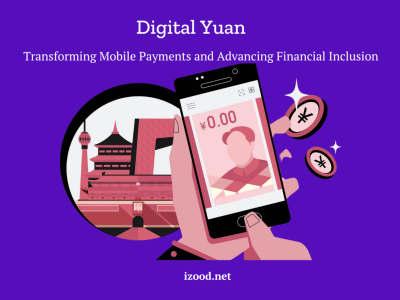
In the last decade, blockchain technology has emerged as a transformative force, not only revolutionizing the world of digital currencies with Bitcoin but also reshaping various sectors, particularly finance. According to a report by Allied Market Research, the global blockchain in the banking and financial services market is projected to reach $11.3 billion by 2026, growing at a CAGR of 72.4% from 2019 to 2026. While Bitcoin remains the poster child for blockchain, the underlying technology has far-reaching implications beyond cryptocurrency. In this article, we delve into the innovative applications of blockchain in the realm of finance, highlighting its potential to disrupt traditional systems and empower individuals and institutions alike.
Understanding Blockchain Technology
Blockchain technology works like a giant digital ledger that records transactions. Imagine it as a huge book that everyone can see, but no one can change once something is written down. This book is not kept in one place but is copied and stored on many computers worldwide, called nodes. Each page in this book, called a block, contains information about transactions, like who sent money to whom and when it happened. What’s cool is that each block also has a unique code that’s based on the previous block’s code, forming a chain. This makes it really hard for anyone to tamper with the information because if they change one block, it messes up the codes for all the following blocks. This decentralized and transparent system ensures security and trust without needing a central authority, which is why it’s great for financial transactions. It’s like having a super secure and reliable way to keep track of money without relying on banks or other institutions.
Ways Blockchain Transforms Traditional Finance
Here is how blockchain technology revolutionises the finance industry.
- Transforming Financial Transactions
Traditionally, financial transactions involve intermediaries such as banks or clearinghouses to verify and process transactions. However, blockchain technology enables peer-to-peer transactions without the need for intermediaries. By eliminating middlemen, blockchain reduces costs and processing times while increasing transparency and security. This not only streamlines financial transactions but also opens up new possibilities for global commerce.
- Smart Contracts and Decentralized Finance (DeFi)
Smart contracts are self-executing contracts with the terms of the agreement directly written into code. These contracts automate and enforce the terms of an agreement without the need for intermediaries, reducing the risk of fraud and increasing efficiency. In the realm of finance, smart contracts enable the creation of decentralized finance (DeFi) platforms that replicate traditional financial services such as lending, borrowing, and trading in a decentralized manner. By leveraging blockchain technology, DeFi platforms provide individuals with greater control over their finances while eliminating the need for traditional financial intermediaries.
- Supply Chain Finance and Traceability
Supply chain finance is another area where blockchain technology is making a significant impact. By recording every transaction and movement of goods on a blockchain, companies can ensure transparency and traceability throughout the supply chain. This not only helps prevent fraud and counterfeiting but also enhances efficiency and accountability. With blockchain, stakeholders can track the origin and journey of products from manufacturer to consumer, ensuring ethical sourcing and compliance with regulations.
- Identity Management and KYC
Blockchain technology has the potential to revolutionize identity management and Know Your Customer (KYC) processes in the financial industry. By storing identity information on a blockchain, individuals can maintain control over their personal data while granting access to authorized parties as needed. This not only enhances privacy and security but also streamlines KYC processes for financial institutions, reducing costs and improving customer experiences.
- Democratizing Access to Financial Services
One of the most significant impacts of blockchain on finance startups is its ability to democratize access to financial services. Traditional banking systems often exclude individuals and businesses from underserved communities due to high fees, stringent requirements, and geographical limitations. Blockchain-powered startups are leveraging decentralized finance (DeFi) to provide financial services such as lending, borrowing, and trading to anyone with internet access, regardless of their location or financial status. By eliminating intermediaries and reducing barriers to entry, these startups are empowering individuals to take control of their finances and participate in the global economy.
- Streamlining Cross-Border Payments
Cryptocurrencies have surged in popularity in recent years, becoming a hot topic of discussion among investors and traders worldwide. These digital currencies operate on decentralized networks based on blockchain technology, offering a secure and transparent alternative to traditional financial systems. What’s fascinating is that millions of people are actively trading cryptocurrencies, even those without prior experience in trading financial assets with auto trading bots such as Bitcoin 360 AI. Cross-border payments have long been plagued by inefficiencies, high costs, and lengthy processing times. Finance startups leveraging blockchain technology are revolutionizing cross-border payments by providing faster, cheaper, and more transparent alternatives to traditional banking systems. By using blockchain-based platforms, startups can facilitate peer-to-peer transfers of digital assets across borders in real-time, bypassing costly intermediaries and reducing transaction fees. This not only benefits individuals and businesses sending remittances but also enhances international trade and commerce by simplifying payment processes.
- Enhancing Security and Transparency
Blockchain technology offers enhanced security and transparency compared to traditional financial systems. Finance startups are leveraging blockchain’s cryptographic algorithms and decentralized architecture to create tamper-proof ledgers that record transactions in a transparent and immutable manner. By storing transaction data on a distributed network of computers, startups can prevent fraud, manipulation, and unauthorized access to sensitive information. Additionally, blockchain enables real-time auditing and verification of transactions, providing stakeholders with greater visibility into the flow of funds and assets.
- Facilitating Tokenization of Assets
Finance startups are leveraging blockchain technology to tokenize real-world assets, representing them as digital tokens on a blockchain. By digitizing assets such as real estate, stocks, or commodities, startups can unlock liquidity and fractional ownership opportunities for investors. Tokenization enables individuals to invest in assets that were previously inaccessible or illiquid, thereby democratizing investment opportunities and diversifying portfolios. Additionally, blockchain-based asset tokenization offers greater transparency, efficiency, and security compared to traditional asset ownership models.
- Improving Compliance and Regulatory Compliance
Compliance with regulatory requirements is a significant challenge for finance startups, particularly in highly regulated industries such as banking and finance. Blockchain technology offers solutions to improve compliance and regulatory compliance through transparent and auditable transaction records. Finance startups can leverage blockchain-based platforms to automate regulatory processes, such as identity verification, anti-money laundering (AML), and know-your-customer (KYC) procedures, reducing the risk of non-compliance and regulatory fines. Additionally, blockchain enables real-time monitoring and reporting of transactions, providing regulators with greater visibility into financial activities and ensuring adherence to regulatory standards.
Conclusion
Blockchain technology has the power to transform finance by providing secure, transparent, and efficient solutions to age-old problems. From revolutionising financial transactions to enabling decentralized finance, supply chain traceability, and identity management, the applications of blockchain in finance are vast and varied. As we continue to explore and harness the potential of this groundbreaking technology, the future of finance looks increasingly decentralized, transparent, and inclusive.







